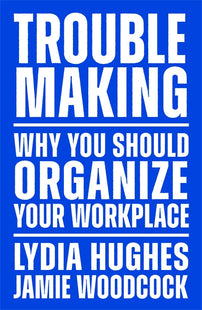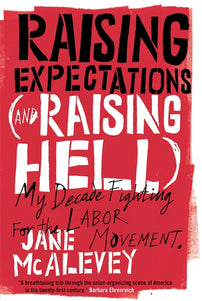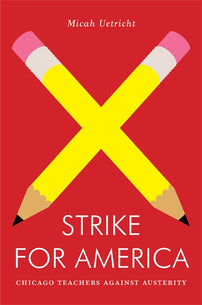From the Front Lines of the Largest Academic Strike in US History: Graduate Students Across the UC System Go On Strike
For two weeks, graduate student workers from across the University of California have been leading the largest academic workers' strike in US history. Striking worker Misha Lerner details the history of the strike and workers' demands in this article.

For all those who feel inclined, please consider donating to the UAW’s strike hardship fund.
At 8:00 am on Monday, November 14th, some 48,000 workers, represented by the UAW, went on strike across the University of California system. This constitutes the largest strike of academic workers in United States history, and the largest strike of 2022. The striking workers are graduate student instructors, undergraduate tutors, postdocs, teaching assistants, and student researchers. In solidarity, we have come together to demand a fair contract from the University of California (UC) – seeking improved child care, the elimination of non-resident fees for international students, and, most pressingly, the right to work where we live.
The history of this strike can be traced back to 2019, when students at UC Santa Cruz initiated a wildcat strike which spread throughout much of the UC system. The central demand of this movement was a complete reconceptualization of graduate student compensation. Instead of a wage system based on a set salary, with small, percentage-based salary increases negotiated with the UC every four years, the workers at Santa Cruz proposed a new system: tying wages to the cost of housing in the communities in which UC campuses are located. In essence, their demand for a cost-of-living adjustment (COLA) stipulated that no graduate student should have to live in rent burden, a metric defined by the Department of Housing and Urban Development as the need to pay more than 30% of one’s income on rent. Currently, a majority of UC graduate students pay more than 50% of their income on housing, classifying them as severely rent burdened.
In our current negotiations with the UC, the 2019 workers’ demand has been reformulated to stipulate that graduate student employees should have their salaries raised to $54,000 per annum, with subsequent yearly wage increases tied to the cost of housing. Tying graduate student compensation to the cost of housing is crucial for graduate student workers because it deprives the UC of its greatest economic weapon – the ability to use inflation, and especially housing inflation, to reduce any economic “gain” made at the bargaining table to an inevitable loss a couple of years later. This is especially poignant given that the UC is one of the largest for-profit landlords in California. Forcing the UC to meet this demand would strip The University of California of its ability to counteract any wage increases with a rent hike on graduate student housing.
The UC’s exploitation of graduate student workers through the rents it collects on its properties became especially apparent when, during the beginning of the Covid-19 pandemic, UC Berkeley decided to raise rents at the University Village complex by 4%. Such an increase was intolerable, especially since many University Village residents lost their income due to the pandemic—particularly the partners and spouses of graduate student employees who had lost their jobs. Many residents at the Village responded to the increase with a rent-strike, which successfully resulted in a rent-freeze. However, as Jason Bircae, a graduate student in UC Berkeley’s English Department, described in a speech delivered at a Spring 2022 union rally, the University retaliated against several of those who decided to go on strike. Per Bircae:
…when UC retaliated against residents who had unpaid back rent by placing holds on our registration, we didn’t know who to turn to. The worst part was that the registration hold on my account prevented me from being employed by the university. The UC as a landlord was saying ‘you can’t register for classes until you pay off your debt’ and the UC as an employer was saying ‘we can’t pay you until you register for classes’. It felt like I was in a Kafka novel. It left me feeling bitter and isolated. Later, I did get in touch with other residents who shared with me how they’d been denied access to health and child care services; access to scholarship and grant money; even access to their own diplomas. Some residents had to leave the village with their unpaid rent trailing behind them as debt.
The wildcat movement that started at UC Santa Cruz dissipated after the beginning of the Covid-19 Pandemic. But today, a world-wide increase in labor militancy has electrified our current negotiations with the UC for a fair contract, resulting in an October 2022 strike authorization vote in which 98% of all participants voted to go on strike. Of all the strikes and unionization drives which have happened since the onset of the pandemic, special attention should be given to the Columbia graduate student strike of 2021-2022, which lasted for ten weeks, and fundamentally transformed the landscape upon which graduate students engage in economic warfare with their employers – demonstrating the effectiveness of long-term strikes within higher education.
[book-strip index="1" style="display"]UC’s current proposals do not come close to meeting graduate students’ material needs. Teaching assistants and associate instructors have only been offered a raise of 7%, with subsequent annual increases of 3%. With national inflation at 7.7%, this “raise” amounts to an effective pay-cut. As of the writing of this article, the bargaining team for two of the units which represent graduate student employees have passed a proposal which does away with the demand for a cost-of-living adjustment. Instead of tying our compensation to the cost of housing, the proposal stipulates that wages should increase by a flat rate of 7% every year. Despite this recent development, the demand for a cost-of-living adjustment continues to be the primary motivation for many, if not most, workers across the UC to continue the strike. In an increasingly uncertain economic landscape, workers do not merely require that their compensation catch up to inflation, but that they are ensured that their wages will always be enough to provide for life’s basic necessities.
Over the course of bargaining, the UC has accumulated thirty-four unfair labor practices, which range from the UC illegally increasing some workers’ compensation outside of the terms of the contract during bargaining (a tactic used to erode workers’ sense of solidarity), to the UC attempting to interfere with union activity. UC San Francisco offers a particularly colorful example of worker intimidation, where a recently tenured principal investigator was caught in the act of “angrily ripping down all the UAW posters that were posted on the 13th floor of the UCSF Parnassus Medical Sciences Building.”
UC administrators have also targeted faculty with their union busting tactics. Some faculty who support the strike have expressed that statements made by the UC, while not rising to the level of unfair labor practices, serve to “confuse” and “mislead” faculty members about their rights during the strike. Most crucially, what is at stake is the right of “non-managerial” faculty members to refuse to cross the picket line and stand in solidarity with their striking graduate students. On November 14th, Executive Vice Chancellor and Provost Benjamin Hermalin and Chief People and Culture Officer Eugene Whitlock, both of UC Berkeley, sent out a statement to all faculty, staff, and students which reads: “Faculty members are aware that they must ensure that instruction is delivered to their students.” In response, the Berkeley Faculty Association – an organization that has been publicly supportive of the strike – sent an email to its membership dismissing the administration’s statement and emphasizing that it “is factually untrue and has no legal-basis.” When requested to comment as to whether the November 14th statement violates faculty’s right to not cross the picket line, EVCP Benjamin Hermalin responded with the following:
The University respects the right of faculty to engage in protected and concerted activity, including respecting the UAW picket line. The statement you quote is a general statement concerning the faculty’s obligation, under the Academic Personnel Manual, to deliver the curriculum and, to the extent possible under the circumstances, minimize the impact on enrolled students. While I am not an attorney, it is my understanding that the law in this area is highly nuanced and somewhat ambiguous; hence, people may wish to take any blanket black-and-white statement on the matter with a grain of salt. (emphasis added)
Now that the semester is coming to a close, the administration at UC Berkeley is attempting to weaken the power of striking graduate student workers by demanding grades from graduate student instructors (GSIs) who work as graders, TAs, and instructors. James Vernon, a professor of history at UC Berkeley and chair of the Berkeley Faculty Association has reported that faculty “were also asked to collect grades from GSIs (graduate student instructors) before the strike began.” The withholding of grades is one of the primary points of leverage which graduate students have in negotiating with the university. A recent email from the UC Berkeley Academic Senate states that “The register has agreed to extend the deadline for the submission of grades through Cal Central from December 21 to December 31. We are aware that an additional ten days is not nearly enough to mitigate the very substantial workload that faculty teaching large classes may confront.” There are two important points to extract from this excerpt. First, this email seems to indicate that faculty should scab striking workers by picking up, to the best of their ability, any work that their TAs and GSIs are refusing to do. Faculty, of course, have no obligation to perform labor which would otherwise be done by a graduate student. Additionally, the fact that the grading deadline has been moved to the 31st demonstrates that striking graduate student workers are most powerful when they both withhold instruction and disrupt the operation of the University’s administrative apparatus by withholding grades.
Despite the administration’s efforts, the UC graduate student worker strike has been met with incredible solidarity from other unionized workers across the UC system. Statements of support and solidarity have come in from fellow unions, including the ILWU, which represents the longshoreman who work at the Port of Oakland, and AFSCME Local 3299, which represents service and patient care technical workers across UC campuses. Many UPS drivers who are organized with the Teamsters refused to cross the picket line and did not deliver packages to UC Berkeley. The same can be said for garbage truck drivers and construction workers at UCB. The latter work stoppage would have continued, had the UC not threatened to serve UAW with an injunction if it did not stop picketing construction sites on campus. Undergraduate students at UC Berkeley associated with the campuses’ chapter of the Young Democratic Socialists of America (YDSA) helped to organize a 1,500-person march to UC President Michael Drake’s mansion. Gabriel McAdams, one of the march’s organizers and a UAW member, gave the following reason for why undergraduates overwhelmingly support the strike:
Students support the strike because they realize that their GSIs’ working conditions are their learning conditions. When GSIs have to scrape by just to pay the rent and feed their families, they do not have the time and energy to give their students the attention and care they deserve. Undergrads know the status quo is simply not fair to their instructors or to them as students. That’s also why I am out on the picket line, because a fair contract helps both academic workers and students across all of California.
The strike across the UC system is just one of many strikes taking place within higher education at the current moment. From adjuncts at the New School in New York, to university employees across the United Kingdom represented by the University and College Union, workers across higher education are not merely attempting to better their economic standing, but to assert that they are indispensable in a system that continues to ignore the worth of non-tenured educators of all varieties.
Misha Lerner is a graduate student in the Department of Slavic Languages and Literatures at UC Berkeley. Special thanks should be given to Zach Hicks (Slavic UCB) and Sophie Lockey (Slavic UCB) for helping to edit this article.





